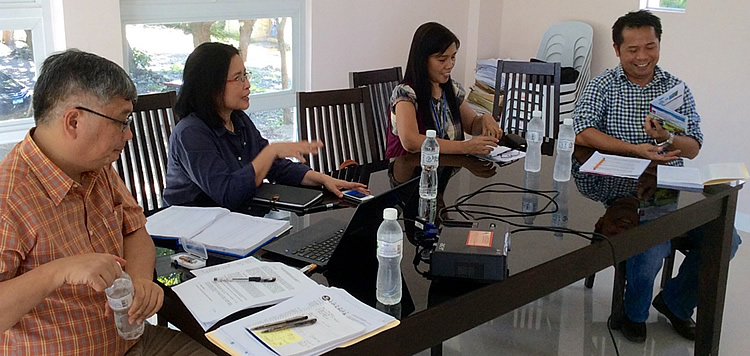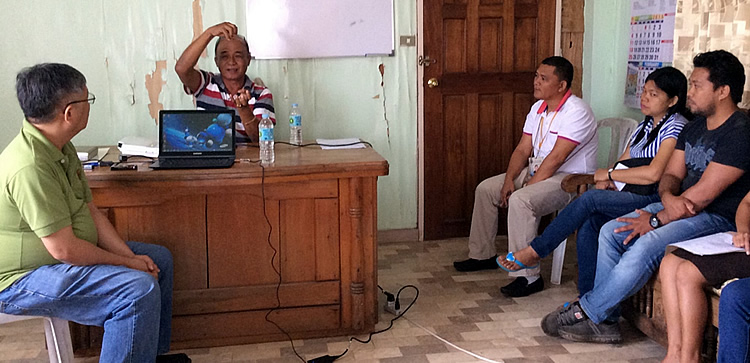Spearheaded by the Research and Development Department (RDD) of SEARCA, the piloting project aims to harvest SEARCA’s 40 year-experience on ARD and bring this to bear upon the lives of the rural poor and vulnerable sectors in the region; enhance the capacity of communities and partner institutions in effective agricultural systems that demonstrate increased benefit for the poor and vulnerable groups through integrated ground-level intervention; and assess the enabling environment, processes, and performance of key stakeholders in implementing effective agricultural systems.
Guided by social inclusion and environmental sustainability, which are the defining elements of ISARD as defined in SEARCA’s 10th Five-Year-Plan, the project design is based on participatory approach to project planning and management, ecosystems and landscape approach, and systems oriented inter- and trans-disciplinary approach to research and capacity building.
In Mati, the SEARCA team held exploratory talks with the Davao Oriental State College of Science and Technology (DOSCST) president and the heads of the university’s extension and research offices. The possibility of collaborating with DOSCST as partner-implementer was the main agenda. An exploratory meeting was also held in the municipality of Boston with government officials and heads of relevant offices, and the feasibility and appropriateness of the area as a piloting site was discussed. The team conducted site validation of existing development and livelihood projects, and ocular inspection of the ecosystem and landscape ecology of the area. State universities in, and local governments of, Leyte, Aklan, Occidental Mindoro, Camarines Norte, and Laguna will also be visited by the project team as part of the exploratory activities.
The team is composed of Dr. Bessie M. Burgos and Mr. Henry M. Custodio, Acting Program Head and Program Specialist, respectively, of SEARCA RDD, and Professor Rolando T. Bello of the University of the Philippines Los Baños, who is the overall coordinator of the piloting project. (Henry M. Custodio)

